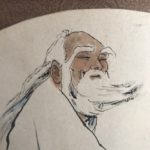If you want to understand the soul of America, read Eric Hoffer. There have been many writers who have written about America. Still, of all of them, only Eric Hoffer wrote at a truly gut level of understanding of this country and the people of America. Why is that? Let me share with you the incredible story of Eric Hoffer and his fascinating life.
Eric Hoffer’s Life In A Nutshell
Eric Hoffer was born in 1898 if we can believe Wikipedia. That is probably as good a reference point as we will likely find.
He lost his sight at the age of 7 when his mother fell down the stairs while carrying him in her arms two years before. She died one year later from that fall. His sight was restored at the age of 15 inexplicably. When his sight returned, he became a voracious reader; one of his favorite writers was Michel de Montaigne, who wrote a collection of essays, first published in 1580. Montaigne’s “Essays” informed and influenced Mr. Hoffer’s writings in later years.
After his father died, Mr. Hoffer took a bus to Los Angeles, California, and wandered for 10 years or so doing odd jobs, always reading, and writing informally. He ended up on Skid Row, and at one time contemplated suicide while there. After leaving Skid Row in 1931, Hoffer became a migrant worker and followed the harvest season along the California coast. Next, Hoffer became a longshoreman on the San Francisco docks in 1943; at this time, he began to write in earnest, publishing his classic, “The True Believer” in 1951. After leaving the docks in 1964, Hoffer became a professional author and an adjunct professor at UC Berkeley. He died in San Francisco in 1983 at the age of 84. At the time of his death, he left behind a significant legacy of his thoughts in books, magazine articles, and notebooks.
The Writings Of Eric Hoffer
Hoffer’s writings at the time of his death in 1983, as noted above, were vast given his life of manual labor and his late start as an author. His magazine articles were critically acclaimed, as were his books, several of which were gems of social and political commentary. Also, he left behind 131 notebooks that were acquired by the Hoover Institution in 2000.
Here is a list of his published work. I recommend all of them. My favorites, though, are “The True Believer,” “Working and Thinking on the Waterfront,” “In Our Time,” “First Things, Last Things,” and “Truth Imagined.”
1951 The True Believer: Thoughts On The Nature Of Mass Movements
1955 The Passionate State of Mind, and Other Aphorisms.
1963 The Ordeal of Change.
1967 The Temper of Our Time
1968 Nature and The City
1969 Working and Thinking on the Waterfront: A Journal, June 1958 to May 1959
1971 First Things, Last Things
1973 Reflections on the Human Condition
1976 In Our Time
1979 Before the Sabbath
1982 Between the Devil and the Dragon: The Best Essays and Aphorisms of Eric Hoffer
1983 Truth Imagined
In my opinion, no modern-day writer writes with such brevity, clarity, and profundity as Hoffer. Moreover, his writing is timeless. His take on American life is as relevant today as it was during his day. Hoffer understood American life because he was a working man and an astute observer of the human condition. His style was to think, reflect, and then write. No one did it better.
Links
External Link: https://en.wikipedia.org/wiki/Eric_Hoffer
Internal Link: https://whitebeardwisdom.com/the-essence-of-america-we-continue-to-debase-it-at-our-peril/


Excellent post Andrew. And thanks for the list of Hoffer’s works.
Bud, thank you for your comment. Eric Hoffer was a man for all seasons in spite of his simple beginnings. I tell my nephews and great-nephews that truth and wisdom have no fear of time. The elders of America must do their part to stop the slide into a new dark ages.
Best regards,
Andrew